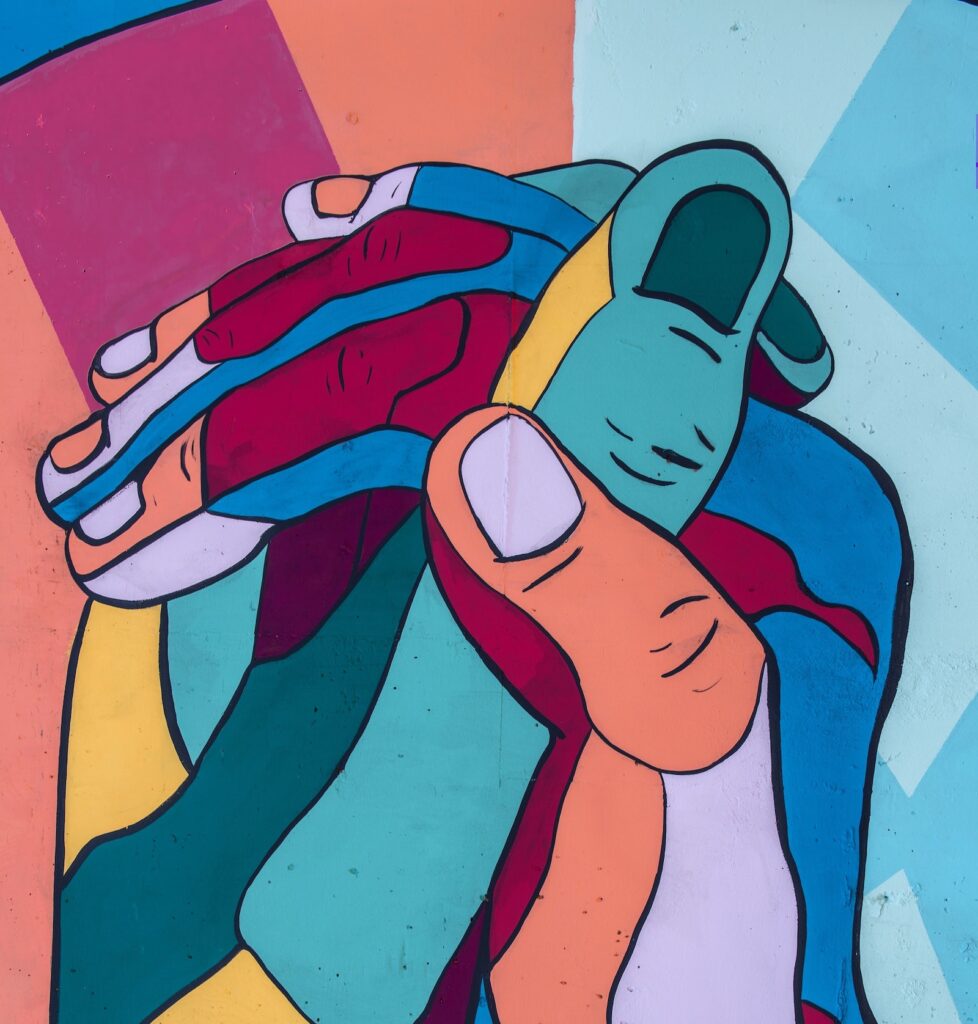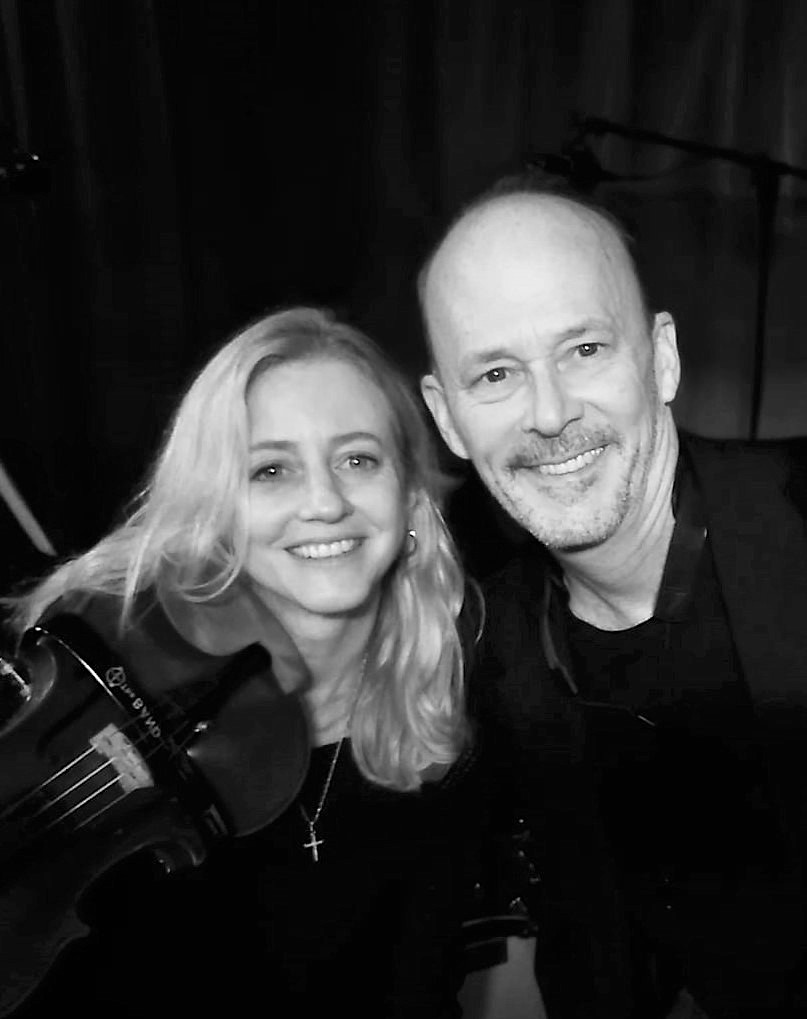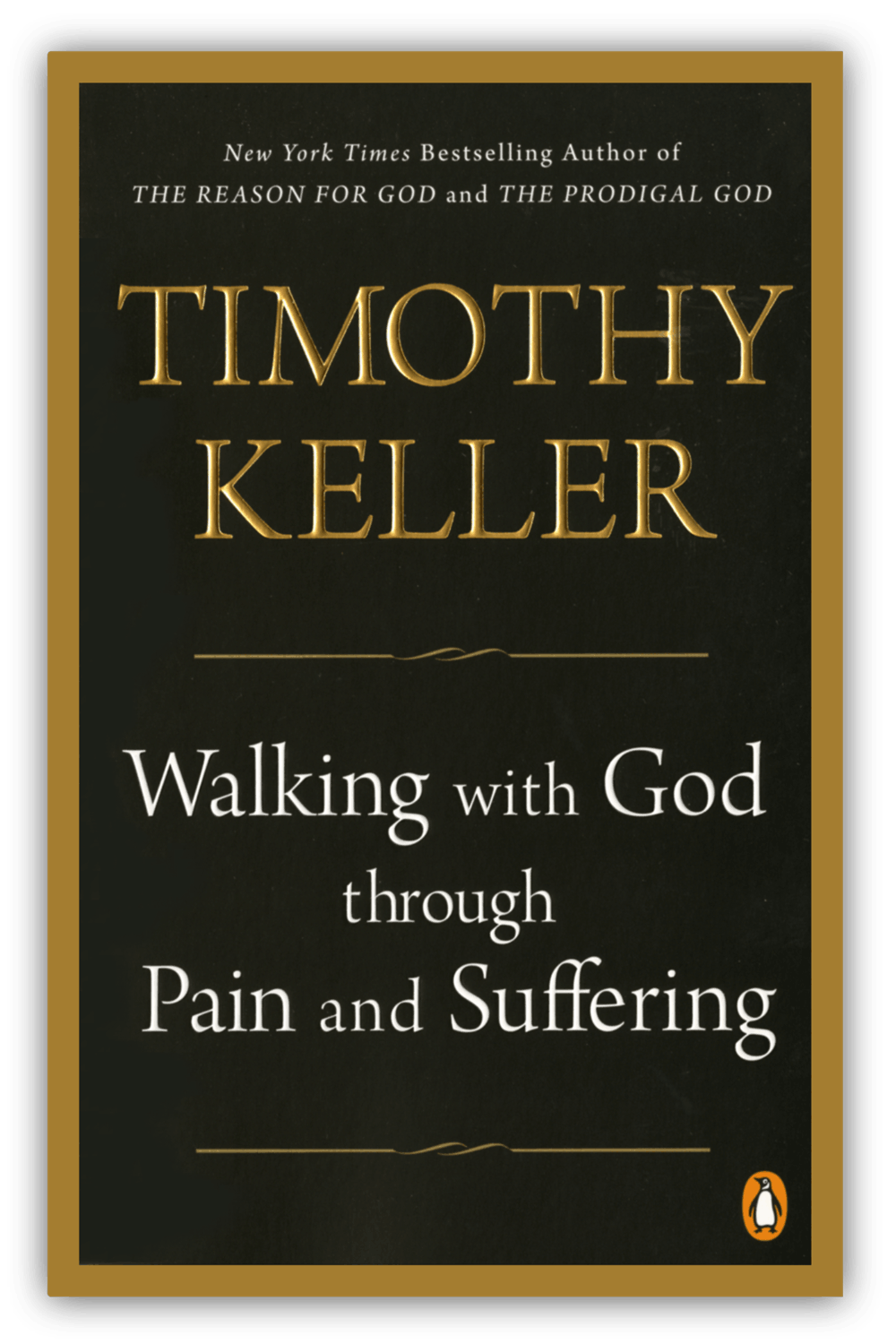Unfortunately, many churches did not voice their opinions in a respectful way, but instead became militant in their stance, insulting the dignity of anyone from the LGBTQ+ community. It was during this period that I received an invitation from Pachy Quesada, president of Los Pinos Nuevos association of churches, asking me to come to Cuba to speak on the subject of the Bible and homosexuality in order to prepare the church to care and minister to those in the LGBTQ+ community.
I happily accepted this invitation with the condition that I bring Sam Allberry, a British speaker with Ravi Zacharias International Ministries, as well as a young artist, Eli, who leads Redeemer Presbyterian Church’s same-sex attracted community group. Their stories were the best examples that I knew of in embodying God’s teachings on this subject. I was convinced that once the pastors got to know them personally, their recognition of the humanity of those in the LGBTQ+ community would be strengthened. I hoped the pastors could learn to appreciate others for who they are as people made in God’s image and not just define them by their sexual orientation.
In January 2020, we headed to Cuba for a memorable four-day pastoral conference on this topic. I opened the conference with a presentation of an Overview of God’s Story of Redemption. We wanted to take our cues for life from God’s narrative. The whole story of the Bible opens with how God out of sheer delight creates human beings in his own image. The creation account itself should be the reason we honor and respect every individual person. The Bible continues with the story of how mankind wandered from God’s ways and its subsequent effects—the audacity to think mankind could rule their lives and planet without their Creator. The devastation is all around us, and all of us are broken inside and out, physically, emotionally, spiritually and sexually. We are self-focused, self-willed and self-ruling—without exception.
The whole story of the Bible opens with how God out of sheer delight creates human beings in his own image. The creation account itself should be the reason we honor and respect every individual person.”
Then we followed the storyline where immediately after the fall, God continues to delight in his creation and seeks to restore it. God’s delight in his creation is not dependent on mankind’s behavior. He seeks to restore even if it means going all the way to hell and back in order to do so. The storyline set the stage for Sam’s teaching and the context for what was happening in Cuba.
I’ll let Sam and Eli continue with their own voices.
Sam: I’ve known from experience in other contexts where the church is culturally conservative that it is necessary to approach things from a different starting point when talking about sexuality. Ordinarily, in a post-Christian western context where secular assumptions are prominent even within the church, my starting point would be to talk about my own story of coming to terms with same-sex attraction and wrestling with the teaching of Scripture on this. In a western context, some personal experience with an issue this contentious adds to your credibility; people are more able to listen to what you have to say when they know you are not speaking from a distance. Once I have established my own connection, I can then go on to say some of what might be the harder things for people to hear.
But in more culturally conservative Christian contexts, the opposite is the case. There the suspicion tends to be towards those who might seek to liberalize the church. Christians in places like this might not yet have a category for fellow believers who wrestle with same-sex attraction and yet seek to obey the Bible’s teaching –– they so associate the experience of same-sex attraction with those whose agenda is to promote same-sex relationships. The only two categories available tend to be non-Christians who are gay and Christians who (presumably by virtue of being Christian) only experience heterosexual forms of attraction.
So in these settings work has to be done before people are able to hear the testimony of faithful and chaste, yet same-sex attracted believers.
With this in mind, and suspecting Cuban Christianity to be more culturally conservative than western Christianity in general, I started the main teaching by walking through the biblical prohibitions concerning homosexuality, teaching on the relevant passages in Genesis 19, Leviticus 18 and 20, Romans 1 and 1 Corinthians 6. I felt it was important to establish my credibility as someone who did not shy away from these texts, but believed and accepted and lived them.
Initial questions and discussion confirmed that it was probably best not to have started with testimonies. There were comments that seemed to express both great discomfort and frustration with the challenges posed by issues of sexuality and gender identity. One theme that started to emerge immediately was a sense that these issues represented a challenge to these pastors’ understanding of masculinity, and needed to be resisted.
All of this underlined what needed to be most clearly taught the next morning before we could broach the issue of responding to Christians who wrestle with such issues. We needed to spell out how the fall has not just affected every person, but every aspect of life, and that everyone is therefore fallen in their sexuality in one way or another. We needed to go into detail about how all of us continue to experience temptations of various kinds –– the New Testament repeatedly assumes this to be so –– and that it is expected that many of the sins that most dominated our lives before we were converted would continue to tempt us in some ways.
Above all, we needed to show how the gospel always levels the playing field. None of us can approach subject matter like this with a posture of superiority or self-righteousness. All of us need grace.
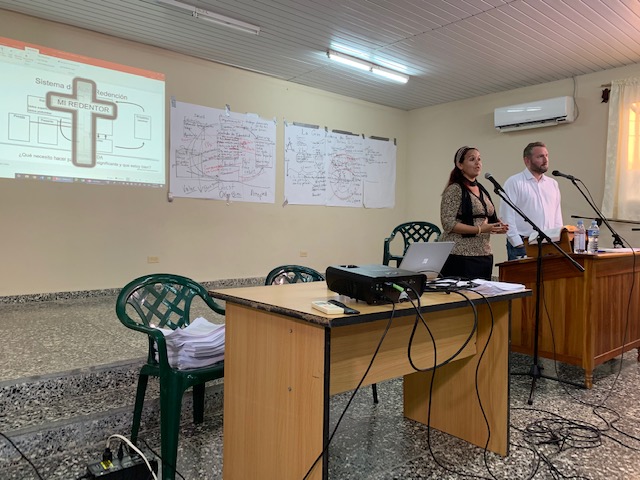
So we were at the stage where we could begin to introduce Eli…
Eli: We overcome by the blood of the lamb and the words of our testimony. At the center of our testimony is the proclamation of Christ’s saving grace and mercy. The fruit of a testimony is that people will see and believe, and the personal story lives in the background.
The beauty of sharing our testimonies is watching the faces of his children glow with overcoming. What do I have in common with Cuban pastors? Almost nothing, except for the saving love of God.
It was beautiful to see people totally unlike me, men and women, rejoice in the love of God together. After sharing, we overcame. We overcame not only the enemy, but long held tropes of masculinity. Together we overcame fear and otherizing language that divides. We overcame militaristic stances that only served to widen the chasm between the LGBTQ+ community and the church. Together, we saw what makes us all alike.
The team in Cuba exercised wisdom when we waited to enter with testimony. We tested the waters and saw where people fell on the spectrum of understanding the LGBTQ+ issues in Cuba, and their often misplaced beliefs about who these people are. We addressed the most common need we all possess, for a loving and powerful God who saves us from the brokenness of which we are all victims and perpetrators.
It was here, where the blood of the lamb met the words of our testimony, a recipe for overcoming.
Lois: After Eli shared his personal testimony, as a counselor, I was to teach the pastors how to counsel someone with same-sex-attraction. The expectation was for me to present some significant interventions unique to same-sex-attraction.
I asked Eli if he would be willing to be a live case study for the pastors. Dear Eli… I don’t think he realized what he was getting himself into. I started by asking him all the questions that I ask anyone whom I counsel. You can’t counsel someone you don’t know. I flashed up a genogram on the overhead projector and I asked him question after question about his upbringing, the values of his home of origin, the hurts, the joys, the interpretations, what his quest for identity and self-redemption looked like, the weariness of trying to find meaning and value in life, the never-ending rat-race.
The room became very still–people were captivated by the story–tears began to flow down Eli’s cheeks, and I could see people struggling with their own tears. I found myself moved as well. It was a holy moment. God was present in an unusual way. All of a sudden, no one was thinking about a young man who is same-sex-attracted; they were seeing and getting to know Eli, a very special person with his unique story, his journey, his personality, his giftings, his insecurities, his hopes, his quest for redemption, just like everyone present. Everyone seemed to identify with him. He was no longer an outsider, but one of them.
At the end of the counseling session, I drew a huge red cross over his story that covered his system and strategies of self-redemption. He no longer needed them, because he has a Redeemer. With Christ comes salvation, forgiveness, peace, rest from the endless quest for significance, a new identity and new resurrection power. And as the Man of Sorrows, he identifies with us in our sorrows and even uses our wounds as a means of understanding in a small way his wounds on our behalf. There was that “ah-ha” moment of “oh, you too, Jesus…” As I was applying these glorious truths to Eli personally, everyone present seemed to wake up to their need for the Cross and all it supplies, too.
Then three pastors offered to come forward, lay their hands on Eli and pray for him and everyone present. There wasn’t a dry eye in the room. One pastor asked him: “Can I give you a hug from all the men in the church who were afraid to hug you?”
After many hugs, overwhelmed, Eli slipped out onto the balcony for some fresh air. Finishing our meeting, the group spontaneously broke out singing the old hymn: En la Cruz, en la Cruz, do primero vi la luz, y las manchas de mi alma yo lavé… (At the Cross, at the Cross, where I first saw the light, and the burden of my heart rolled away..) Their faces were radiant. I later told Sam how sad I was that he couldn’t understand the Spanish words that were sung. He said, it didn’t matter, he could see and read the beaming faces of the men and women singing on top of their voices in praise of God.
Eli: God met us in Cuba in a real way. After I shared my testimony, I heard the voice of the enemy using the same vocabulary he’s always used. “You’re not good enough.” “If only they knew what you really have done, they’d be disgusted by you.”
I stepped outside and I prayed for God to sing his song of peace over me to comfort me. At that moment, I heard a beautiful chorus coming out of the meeting room. I rushed back in to hear the music. It was the sound of men and women, tear-filled and radiant, singing about the light of the cross. “At the cross, at the cross, where I first saw the light, and the burdens of my heart rolled away…”
When they shared their testimonies, it was something that touched my heart in a special way and has demonstrated to me that the gospel is something alive and real.
Lois: What happened next was totally unexpected. The young professional translator for Sam and Eli identified so deeply with Eli’s story (although her story had nothing to do with same-sex-attraction) that she opened up and wanted to share and process what she was learning about herself by having heard Eli process. So we did a live case study again, walking her through her story of brokenness all the way to the cross. It was a God moment. Nothing was forced. The Spirit of God was touching people’s hearts. They wanted to talk and share. There was a freedom to be real, to be transparent.
The stories that Sam and Eli shared, which our fellow Christians in Cuba were so afraid of, so distant from, became the vehicle which God used to open their eyes to see their own depravity. Therefore, they were able to access a deeper aspect of God’s grace, because they realized that they needed it as much as the LGBTQ+ community.
As Sam, Eli and I processed, we realized that three things happened:
- They realized their need for God’s grace.
- This began to close the gap between them and the LGBTQ+ community.
- They were no longer afraid of people with different sexual orientations any more than they were afraid of someone who drinks too much, gossips, commits adultery or is greedy.
Sam: Reflections after the conference.
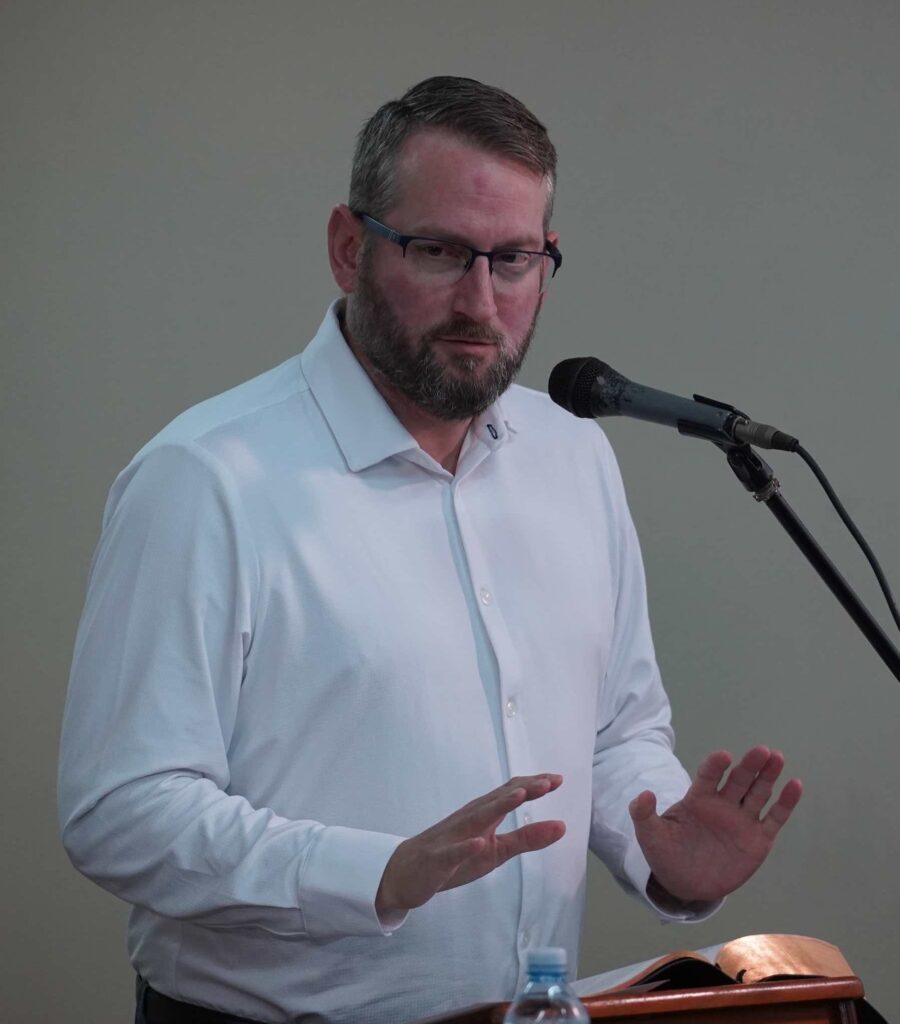
As I flew back home from Cuba, our flight hit some fairly severe turbulence. Even the pilot came on to say things were going to be “a little tricky” for most of the remainder of the flight. I honestly found myself thinking, “Lord, if the plane ends up dropping out of the sky, I don’t think I will mind.”
I felt as though I had just seen God at work in the most remarkable way. Typically, when I have seen very conservative Christians make the journey to a more grace-based approach to sexuality, it has taken a year or so for the shift to happen. But we had just seen a group of pastors go through a similar shift in the space of 24 hours. I had never seen anything quite like it. God seemed to hit the fast-forward button.
So I had my own little airborne Nunc Dimittis while bouncing through the lively weather of the Gulf of Mexico. If indeed the plane was about to drop from the sky, I honestly would not have felt short-changed. It was such a privilege to have been on Cuban soil, to have come alongside these faithful pastors, and to see the Lord move us all in such an unusual way.
Postscript: An interview during the conference (transcribed)
Miguel Broche and Tatiana, a pastor and his wife, who pastor a church of 200 christians in Camajuani, Villa Clara, oversee other pastors along the northern shore of Cuba. They brought 16 pastors/leaders with them to the conference and shared their experiences with me in an interview:
Tatiana: I came with the attitude that there are people with this issue, but I came looking at it from the outside.
This has nothing to do with me and I am not close to anyone with this issue. But God has revealed things to me in such a way that, for me personally, I realize that we are all a part of his great story and all of us Christians are struggling. Although I don’t have that particular struggle, I can identify because I have other struggles. The testimonies of those who shared have been very impactful. It’s a big difference to go to a conference to hear about a certain topic or to hear and be challenged about people who have a struggle from the outside or from afar, but to actually be with people who are living this struggle is very different. When they shared their testimonies, it was something that touched my heart in a special way and has demonstrated to me that the gospel is something alive and real. We have a church that we are enjoying, but I think with this topic, God is unsettling us a little. In our group, we are fine, but we are becoming aware that there are people with this need, so we have to make space for them, too.
Miguel: God has surpassed my expectations and I am really excited to have classes, to share the teachings of Pastor Sam, and the testimony of Eli. What happened this afternoon? It was an atmosphere of grace. We enjoyed a time of praying and hearing his testimony. It’s challenging us and we have to do much more as pastors, have a heart for all people. As I understand my own sinfulness, it helps me to understand the sinfulness of others, too. It helps me open up my own heart, because the gospel touches all of us. So what we have discussed has touched my relationship with God as well. There are things in my heart, I have to change. But it has been excellent. And not just for us, but all the pastors and leaders that we brought with us. They are talking about this in their rooms, hallways, the dining room–God is moving us. This is what we needed. This is something good, for us, for our churches and for our nation, too. So, thank you!
Tatiana: It’s that for us, Cubans, it’s cultural. We have been closed to this topic, and at the same time, with a little fear. We didn’t know in which perspective this teaching was going to be focused. We have never treated this subject openly. And God has surpassed our expectations, because it has addressed each one of us. It’s something that one can’t achieve, nor pretend, nor even purpose–it’s something that the Holy Spirit does.
Lois: Yes, I have the impression that God visited us today… in a way that not even I had planned.
Tatiana: Yes, it’s something you can’t plan. God has moved among us in an incredible way. And God is unsettling us for this. We can’t continue to deny that the need exists… all people need Christ. And with all the principles that we have discussed about God’s story and all the teachings of the pastor, we have seen that all those principles we can apply for those who have this particular struggle. But the truth is, it applies to all of us.
Lois: We are all the same.
Tatiana: We are all in the same boat.
Tatiana: For me personally, it has surpassed all my expectations. God has used it in an incredible way.
Lois: And I think that the whole community in itself with their testimonies, their questions, the prayers, even the hymn we sang–God used it all to unite us, to talk to us. Even the young man who shared his testimony after he opened himself up, he felt ashamed as if he were naked after sharing so intimately. He was out on the balcony talking to God, ”God, I need you to sing over me.” And then all of a sudden, he heard us singing, “At the Cross, At the Cross, Where I first saw the light and the burdens of my heart rolled away…”
Miguel: A moving of God.
Tatiana: Yes, those things can’t be forced. The Spirit of God has moved incredibly in a special way.
Miguel: We hope there will be more courses like this. If this could be repeated, it would be wonderful.
Tatiana: It’s that God is moving us as a church to think about things that up to now we haven’t even thought were necessary. But they are necessary and they are real. Some things we are afraid of, but we can’t ignore them.
Lois: Well, Sam wants to come back.
Miguel: And we want him to come back. And you, too.
Lois: That won’t be a problem.
This is a report by the Presbyterian Church in America’s Ad-Interim Committee on Human Sexuality. It was prepared by seven ruling and teaching elders over the period of a year, and it includes a selective, annotated bibliography for other reading. Dr. Timothy Keller was one of the teaching elders on the committee.


